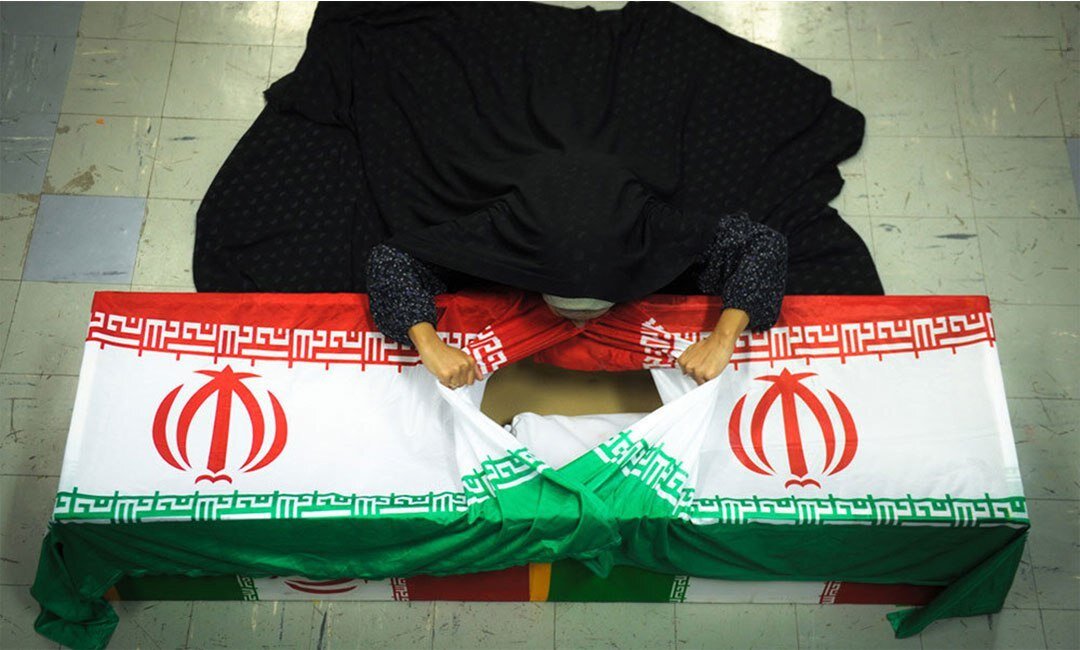Iranian women’s role in Sacred Defense literature, cinema undeniable
Women from the Leader's point of view - Part 9

TEHRAN – Although the literature and cinema of the Sacred Defense period are mostly manly and based on the stories of male combatants on the battlefield, women also played great roles in these fields that cannot be ignored.
The role of women in Iran is very important. Women have always had a significant impact on events in different periods of history. The effective role of women during the eight years of Sacred Defense (Iraqi imposed war against Iran in 1980-1988) is undeniable- the women who supported the brave warriors in the Sacred Defense with their indescribable sacrifice.
Over the past two decades, the role and status of women during the Sacred Defense era have taken on a significant portion of the war literature, but there are still a variety of topics that have not been paid much attention to.
Many authors and film directors have investigated the role of women especially in the stories of the war period and the characters who lived in Sacred Defense literature.
They have particularly been focusing on the role and characters of mothers and wives of the martyrs, war veterans and prisoners and women who stayed at home but helped frontline combatants.
Leader of the Islamic Revolution Ayatollah Seyyed Ali Khamenei considers the period of Sacred Defense as one of the most important eras of the country that can be shown through art and literature to the young generations.
Ayatollah Khamenei in on May 25, 2017 address to a gathering of war veterans and commanders, as well as artists, filmmakers, writers and narrators producing works of art about the Sacred Defense hailed the memories of the war as a “national asset”, and likened the works of art about that era to “cement being pumped into the pillars of the Revolution, national identity and country’s progress.”
The Leader has on various occasions emphasized the necessity for cherishing the memories of the Iranian soldiers’ courage and devotion to their motherland during the Sacred Defense.
Iranian literature is full of books that remind us of the suffering, resistance and other dignities of the nation during the Iraqi imposed war on Iran.
Ayatollah Khamenei also pays special attention to the books written by Iranian female authors about that era.
‘Faranguiss’ [a book compiled by Ms. Mahnaz Fattahi containing the memoir of Ms. Faranguiss Heidar-Pour on the 8-year Saddam imposed war on Iran] is among the most known books that were paid heeded by the commendation of the Leader of the Islamic Revolution.
“The books that these ladies have written--those I have read and seen--are among the best stories in terms of imagery and the like; they are not novels; rather they are memoirs. But they are truly beautiful. I really thank you for your work,” said Ayatollah Khamenei on the sidelines of a meeting with the publishers of the book ‘Faranguiss’. (September 30, 2018)
In a meeting with the publisher and production team of ‘One Woman's War: Da’ [a memoir by Ms. Seyyedeh Zahra Hosseini detailing her experiences during the Iran–Iraq War] the Leader of the Islamic Revolution stated, “The book ‘Da’ which is actually a fine book and presentable to the world, is related to a small part of the history of the imposed was and this shows that our 8-year holy defense has to potential to produce thousands of books in order to convey Islamic culture and values to society and to the world.” (May 10, 2010)
He also appreciated Ms. Zahra Hosseini, narrator of ‘Da’ and Ms. Azam Hosseini, author of the book.
The historical record of Iranian people's resistance against the aggression of Baathists, as an important and sensitive action, has played a decisive role in explaining the existing realities. In this regard, the role of television and especially cinema in showing the importance of the Sacred Defense era is also great and can never be denied and belittled.
The Leader of the Islamic Revolution about the importance of cinema in one of his speeches said that cinema is more valuable than many other arts fields because the way of conveying its message is better, more prominent, and more valuable than others.
Directed by Iranian filmmaker Rasoul Mollagholipour in1998, ‘Hiva’ is one of the most successful examples of films produced in Sacred Defense genre that portrays the character of a martyr's wife.
“Heeva Akbari after 15 years of the disappearance of her husband Hamid in the war decides to visit the old house she was living there by her husband,” the synopsis of the film read.
Ayatollah Khamenei in a message issued to Congress ‘7,000 Martyred Iranian Women’ on March 6, 2013 said, “ I hope that by the blessed blood of these noble women [Iranian women martyred in imposed war], the media, artists, intellectuals and the cinema can show the world how Muslim Iranian women engaged in great jihad."
